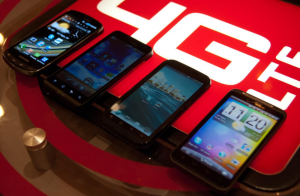 The growth of 4G really kicked into gear in 2012 with over 100 LTE networks going live in over 50 countries across the world. It seems like mobile consumers are hungry for data and that trend is set to continue into 2013.
The growth of 4G really kicked into gear in 2012 with over 100 LTE networks going live in over 50 countries across the world. It seems like mobile consumers are hungry for data and that trend is set to continue into 2013.
Mobidia has been analyzing data from over 100,000 Android LTE users in the U.S., Korea, and Japan, to try and establish whether they act differently from people still using 3G networks. The results are interesting, if a little unsurprising.
For a start, LTE users are gobbling down more data than their 3G counterparts. A whopping 132 percent more in South Korea and 67 percent more in Japan. Mobidia also found a correlation between the rising demands for data on LTE networks with a drop in demand for Wi-Fi – there was a relative decrease across all markets and an absolute decrease in Korea.
The good news for carriers is that the pricing strategy reset, which has sounded the death knell for unlimited data plans in favor of metered data usage, appears to be working. Mobidia pointed to SKT LTE subscribers, revealing that only 7 percent have unlimited data plans compared to 24 percent of SKT 3G subscribers.
In a nutshell, people download more data on LTE networks, so they don’t bother using Wi-Fi as much, and they’re prepared to pay for the privilege by the GB. You can find more insights in the full white paper.
These results are somewhat puzzling, as data restrictions have gone up significantly in the last year. Though data connections are faster, its much easier to hit your limits, making Wi-Fi access all the more attractive. At least, one would assume. The numbers seem to indicate the opposite. At least, for now.
Editors' Recommendations
- Have a Google Pixel 8? You’re about to get these 4 new features
- What is 5G? Speeds, coverage, comparisons, and more
- Samsung Galaxy Z Flip 4 vs. Galaxy Z Flip 5G: should you finally upgrade?
- 5G vs. 4G: How does the newest network improve on the last?
- 5G vs. Wi-Fi: How they’re different and why you’ll need both


